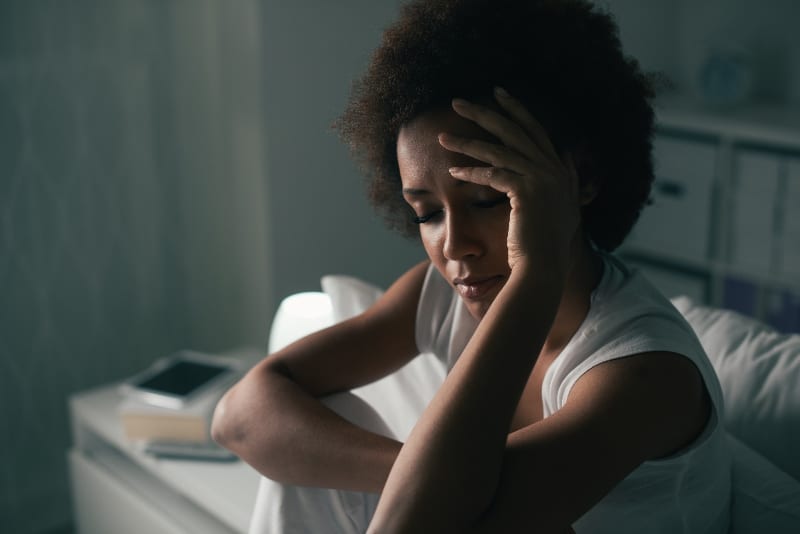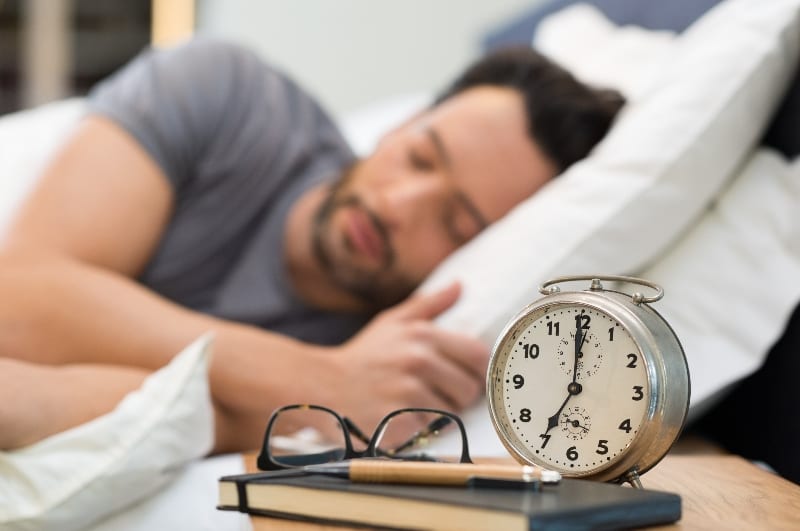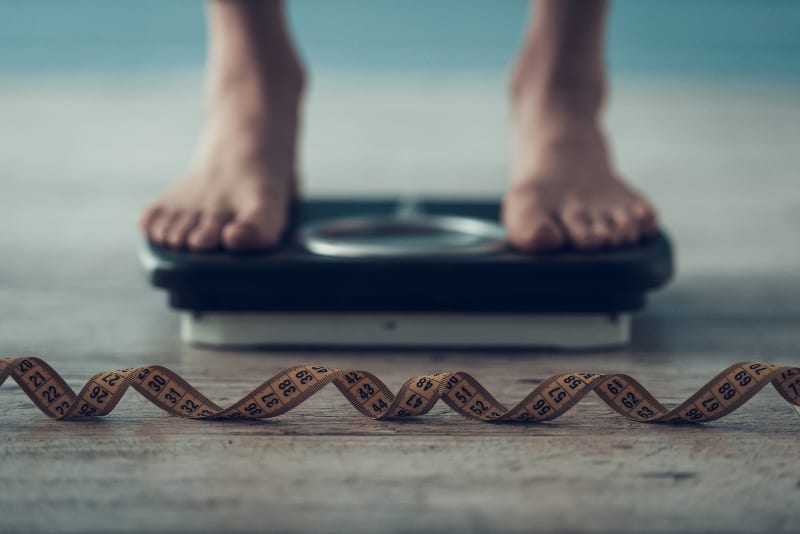How to Recognize Depression in Yourself
By Elizabeth Crain
6/17/2021
More than a Downer Mood: How to Recognize Depression in Yourself
Some people may casually say they’re feeling depressed when they have a rough day or feel down, but clinical depression goes deeper than that. Depression can slowly dampen many aspects of your life, and you might not even notice it yourself.
Depression isn’t just a mood; it’s a persistent illness—one that can sneak up on you and overwhelm you before you even realize something is amiss. In fact, it’s common for patients living with depression to minimize or disregard their symptoms, assuming it’s something they can just push through. The truth is that depression can worsen over time if left untreated, and can make everyday tasks and routines more challenging.

Due to the fact that depression is often overlooked by those living with this mental illness, you might be wondering, “Do I have depression?” or even “How do I know if I have depression?”
Here we cover the five major symptoms of depression so you can know how to recognize depression in yourself, and seek out professional help for this serious condition.
1. Loss of Interest in Activities

Some days, you’re just not in the mood to go out, have guests, or do something strenuous. That’s normal. But if you’ve noticed a significant and sustained decrease in your interest in activities you used to enjoy, that’s often a sign that there’s more going on.
Should you suddenly find yourself actively avoiding things that used to bring you excitement and satisfaction—be that hobbies, social activities, entertainment, sex, or otherwise—you may be experiencing anhedonia, a sign that your neurochemistry has changed and the pleasure centers of your brain are being hijacked by depression.

2. Changes In Sleep

Everyone enjoys a lazy Sunday afternoon nap now and then, and everyone has to burn the midnight oil from time to time.
A single incident of unusual sleep patterns is not necessarily a cause for concern. But, just like loss of interest in activities, when uncharacteristic sleep habits persist, it’s not something to be overlooked.
Depression can significantly alter your sleep schedule in either direction. You may notice you’re having difficulty sleeping, or that you sleep much longer than before. Or worse, you deal with both: struggling against insomnia during normal rest hours, and struggling to stay awake during your normal active periods.
Inconsistent sleep patterns can be hard to measure over long periods of time, and it’s easy to forget how well you slept over the past several weeks if you don’t write it down. So, if you’re worried you may be dealing with ongoing sleep issues, try tracking it with a sleep log, and be as accurate as possible.

3. Loss of Energy

Wanting to cuddle up on the couch after a long day of work is not out of the norm, but it’s a different story if you find it increasingly difficult to handle everyday tasks (especially if those tasks are self-care and hygiene related).
Even with a perfect sleep schedule and diet, depression can drain your energy levels. Trying to do simple tasks, like bathing, folding laundry, or doing the dishes, will feel like climbing Mt. Everest. A complete lack of energy is a strong sign you could be experiencing a major depressive episode.

4. Sustained Self-loathing

Some people believe they’re depressed because they feel contrite about a mistake they made. They missed a major deadline at work, forgot an anniversary, or dropped their phone in the toilet.
It’s normal to feel like kicking yourself for mistakes like this. Most of the time, however, these feelings fade in short order, and life returns to normal.
It only becomes a problem when you can’t make these feelings “leave you alone.”

Self-loathing is the irrational and sustained harsh criticism of oneself. Even if your entire week went exactly as planned, the story you’re telling yourself is one of low self-esteem and self-worth. When this happens, your internal monologue becomes increasingly negative because of your perceived imperfection.
Those feelings aren’t a reflection of your actual worth, but they can feel very real, and they could be a sign of a developing or worsening depression.
5. Appetite or Weight Changes

Depression can also change your relationship with food. Some people will turn to food as a way to cope with their depression, eating more than usual, or indulging in comfort foods more than usual. If you’re eating even though you’re not hungry, it could be a sign of depression.
Depression can also trigger a loss of appetite. In the same way you might lose interest in hobbies and pastimes, you may find that eating just doesn’t appeal to you (and you may even find yourself missing meals by accident). In some cases, you’ll skip meals because the idea of eating is nauseating.

If it becomes a chore to eat, it might be a sign you’re dealing with depression. More specifically, gaining or losing more than 5% of your body weight in a month unintentionally can be a sign of depression.
Get Help Today
Now that you have a better understanding of how to recognize depression in yourself, it’s important to seek professional help. Awareness is the first step and you don’t have to fight depression alone.
Depression will try to convince you that you’re alone in your mental health struggles, but don’t let your mind deceive you.
Your life matters and there are people waiting to help. Talk to compassionate and trustworthy friends and family members, and seek professional help if these signs and symptoms of depression have been lasting longer than a month. The outlook may look bleak now, but this is a fight you can win, and you don’t have to do it alone.
For more information and resources on how to recognize depression in yourself, how to cope with depression, or to seek mental health help from a licensed professional, visit the online resource Mental Health First Aid (from The National Council for Mental Wellbeing).
For additional help, veterans can contact Telemedica for a Mental Health Evaluation by clicking here.
